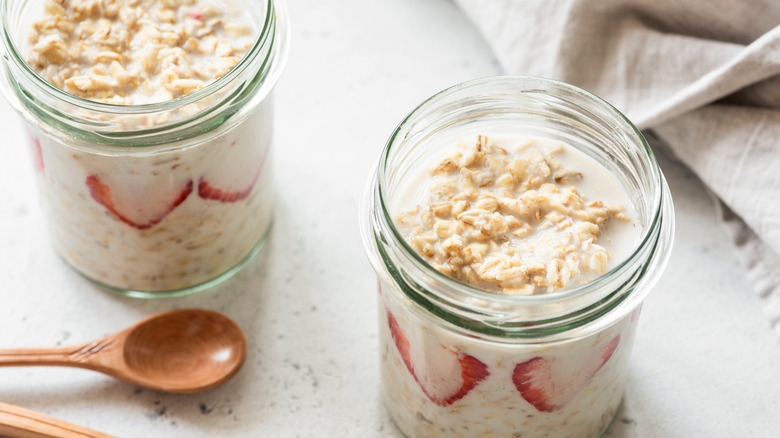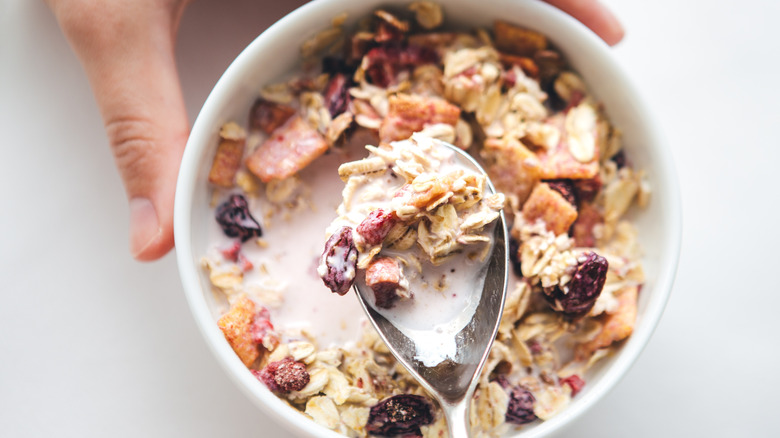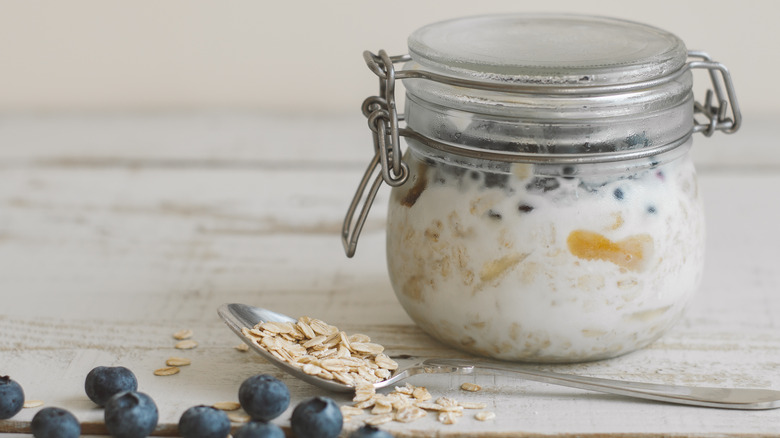How Long Should You Soak Overnight Oats Before Eating?
Overnight oats are a convenient breakfast, that is, of course, if you have the sense to plan ahead. Unlike traditional oatmeal, which can be cooked on the stovetop or in the microwave in a matter of minutes, overnight oats have to be prepared by soaking raw oats in cold liquid overnight. This method allows the oats to soften and absorb the flavors of the liquid, creating a creamy and satisfying breakfast dish. However, the key to achieving this texture lies in how long you soak your oats. So, how long exactly does it take?
Despite what their name suggests, overnight oats technically need only four hours to achieve an edible consistency, though letting them sit overnight will yield optimal results. Within this timeframe, the oats have ample opportunity to absorb the liquid fully and reach the desired softness. If the soaking time falls short, the oats may retain a gritty or chewy texture, diminishing the overall enjoyment of the dish. Furthermore, insufficient soaking can yield oats that are overly dry.
The fastest way to make overnight oats
If you want to reap the nutritional benefits of overnight oats but didn't have the foresight to prep them four hours in advance, you might be tempted to shorten the soaking time by using warmer water. But while this may be effective, heat is thought to affect their digestibility and lower their nutritional value.
The good news is that it's possible to speed up the process without just making oatmeal, and it all comes down to the type of oats you use. Steel cut oats can be used to make overnight oats. However, they have a harder texture. It takes roughly 10 hours to fully soften them, and even then, they will likely be chewy. Old fashioned, or rolled oats, are the most common type to use in overnight oats, but the quickest option is to use instant oats because they soften in only 10 minutes. The one trade off is that if you let the instant kind actually sit overnight, they'll end up becoming mushy.
Is it possible to over-soak overnight oats?
When you soak raw oats overnight, they gradually absorb the liquid they're soaked in, whether it's water, milk, or yogurt. This absorption softens the oats, making them more palatable and easier to digest. The starches in the oats also begin to break down during soaking, which can enhance their digestibility. However, it's crucial to note that a longer soaking time isn't always advantageous, as it's possible to over-soak oats, including the non-instant varieties.
Although overnight oats can be left to soak for up to five days, their texture deteriorates over time. By the second or third day, they may begin to lose their chewiness and overall structural integrity. By the fourth day, they could transform into a porridge-like consistency. Beyond this point, oats undergo noticeable changes in smell, color, and taste. Thankfully, this can easily be avoided as long as you don't soak them for longer than necessary. Aim for a maximum soaking time of 24 hours, which is the sweet spot recommended by most overnight oats recipes. This ensures optimal texture, flavor, and overall quality of your overnight oats.


